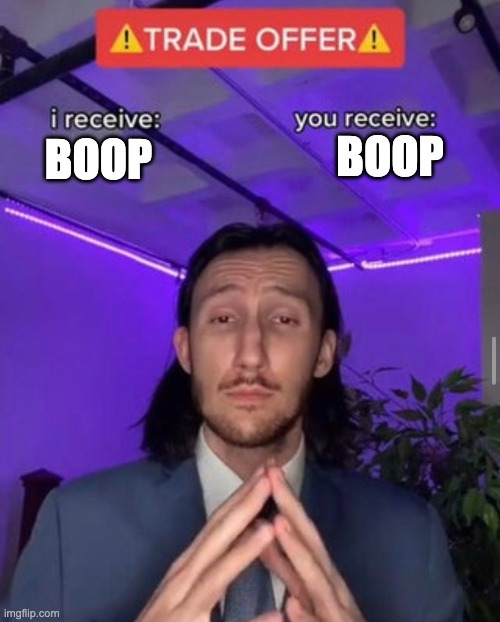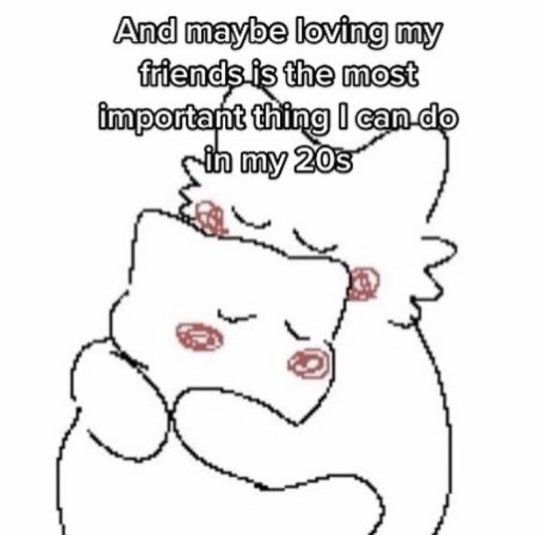Text
Mutuals feel free to message me for ways to keep in contact with me but I probably will have to go on break from this blog due of course to the horrors
2 notes
·
View notes
Text

exploring (4.22.24)
today's poem is a little different! you can read it in full here.
8 notes
·
View notes
Text
A Quick Guide to Writing Dialogue for a Character with a Speech Disorder: Articulation
[large text: A Quick Guide to Writing Dialogue for a Character with a Speech Disorder: Articulation]
As both a speech-language pathology student and someone with what's known as a lateral lisp (more on that in a minute), I rarely see characters like me and my students portrayed, or portrayed well, so here's a quick look at writing a character with an articulation disorder. A warning that this is going to be a long post.
Learning
[large text: Learning]
The next section is a large look at the information and background of what this disorder/disability is and explains it.
What is an Articulation Disorder?
[large text: What is an Articulation Disorder?]
An articulation disorder is a disorder where a sound or sounds are affected and changed in some way (distorted, deleted, substituted, etc).
This is not to be confused with a related disorder known as a Phonological disorder. Phonological disorders are when sound related rules are affected.
A sound, in articulation disorders, can be substituted, deleted, inserted, or distorted. Substituted means instead of sound "a" they say sound "b" (wose instead of rose). Deleted means they get rid of sound "a" and skip to the next part of the word (ose instead of rose). Inserted means a sound is added (ruh-ose instead of rose), and distorted means the sound is off but not completely one of the other categories.
Specifics of Articulation Disorders
[Large text: Specifics of Articulation Disorders]
There are two common sounds related to simple articulation disorders - "r" and the lisps. A thing to understand about "r" is that there are two types of "r" that can have errors - "r" with a vowel and without a vowel. Another important thing to understand is that each sound comes at a certain age and "r" is the last sound to come for most children, meaning that a 4-year-old who can't say "r" is not disordered and has a possibility of learning to say it later without intervention (although intervention and assessment are always preferred sooner rather than later). Again, though, articulation disorders can be any sound or group of sounds.
What are the lisps?
[large text: What are the lisps?]
There are 4 kinds of lisps - we'll start with interdental (the stereotypical "th" for s and z - "have you theen my thlipperth?" usually assigned to a nerd or intellectual character) and the lateral lisp (air leaks out the sides and "s" can become "sh" - "can you pash me the notesh for clash?") There are two other types as well but we can come back to them later.
I'm largely skipping through phonological disorders, as they can be more difficult and there are too many of them to discuss in a short post without that being the entire post!
Personal Experience
[Large text: Personal Experience]
This next section is more fun - looking at my own experiences and opinions as someone with an articulation disorder.
What to add
[Large text: What to add]
There are aspects to a speech sound disorder/articulation disorder that I think is very important to keep in mind that seldom are. The biggest one is that a person with an articulation disorder that impacts them enough is going to have ways to get around their disorder outside of receiving speech therapy. This can include avoiding words that prove difficult and words with certain sounds (I know that "ss" in the middle and end of words is a problem so I may avoid it around people that I think would tease me for it). They may be silent during conversations or class for fear of embarrassment. They may use their body more, like pointing or gesturing to things.
Another important thing I would love to see is reactions to articulation disorders that are positive or even neutral - letting people repeat words until they get the sound right if they're able to or just letting it pass otherwise.
Stereotypes
[Large text: Stereotypes]
There are only 2 types of articulation disorders:
Many people when they think of articulation disorders think of either an "r" substitution (rhotacism) or an interdental lisp. There are so many types of articulation errors a character can have, and for several reasons, from comorbid and related illnesses (such as neurological disorders and dysarthria) to no known reason (known as idiopathic) to structural reasons (my hypermobility makes my tongue too long, which causes air to come out the sides of my mouth).
Articulation disorders make a character less serious:
Often characters who are given an articulation disorder are the comic relief (Tiny Nose in the Owl House is an example of exaggerated rhotacism) and aren't allowed to be serious or leads because our voices and way of speaking are too "ridiculous". This leads me to my next point...
Articulation disorders make a character "stupid":
There's a myth that speech and intelligence are related, which harms not only people with speech disorders but mainly people with intellectual disability. There is no relation between speech sound disorders and low intelligence, but there is nothing wrong with low intelligence and there are absolutely people with speech sound disorders with low IQs* (which do not label all intelligence and have its faults) as well as people with high and average IQs.
Should you "write out" a speech sound disorder?
[Large text: should you "write out" a speech sound disorder?]
This is a complicated question with no specific answer. Many people would agree that it is jarring and unadvised to write out an accent or dialect, but a speech sound disorder is not a dialect. It may also be difficult for the reader to visualize and keep in mind the differences if it is not put down. However, very unintelligible dialogue will need to be adapted for or translated in some way in most scenarios and some readers may be annoyed by the stylization of writing out the errors. I would overall lean towards including it, for reasons mentioned and so the disability isn't one that's discussed but never shown or adapted for.
Why not call my character's speech sound disorder "severe" or "mild"?
[Large text: Why not call my character's disability "severe" or "mild"?]
This is a personal take from my time at a clinic but one that I personally think is really impactful. Especially for younger people reading or younger characters, hearing that their disorder is "severe" may be both alienating and insulting. It also often implies there's no getting better or growth, which is not true. There are better ways it can be phrased - the disorder is significantly impacting them, or their intelligibility is significantly impacted, for example. As for "minor" or "mild" I try to avoid it because any disability can still impact the person - my lisp is relatively "mild" now after a while of using compensatory strategies and learning how to navigate but it still is impactful to me.
When writing characters who are less severely impacted by their disorders it may be more internal than anything else - others may not notice how much the character is compensating. This is going to impact their internal view and narration, however.
And that's another thing I want to stress - these disorders can run all kinds of ranges, from very impactful to barely noticeable. There is no one way to have a speech sound disorder - or a speech disability.
165 notes
·
View notes
Text
I'm doing like the dishes thinking in my head "I'm in a world where fae exists and is mine" and the thought won't leave my head and suddenly even this dirty house is a temple
3 notes
·
View notes
Text
Maybe THIS dose of ibuprofen will be the one that fixes me
569 notes
·
View notes
Text
So my doctor at this point is like. "You may have/probably have some osteoarthritis but that's bizarre to have at 25 so let's focus on the fibromyalgia we can treat"
which i don't know how to feel about. he says at least if the medication for fibromyalgia doesn't help with the pain to come back and we can reassess but at this point we've made it clear even if I don't have EDS I'm super hypermobile/possible connective tissue disorder. Couldn't that be causing the damage to my joints quicker than normal??
2 notes
·
View notes
Text
The truest tumblr impulse: making your mutuals' activity pages fucking unusable
9K notes
·
View notes
Text
reblog only if you’ve received less than 1000 boops! we can all get each other to “max”

48K notes
·
View notes
Text
Wanted to bring attention to the fact that Bisan called for mass protests today (April 1st). It’s okay if you can’t march yourself, but please make it a point to spread this so that those who can march do so—and also take this as your own checkpoint to ask yourself if you’ve been faltering in terms of sharing information about Palestine, doing what you can to fund humanitarian aid in Palestine, and staying informed as to the ongoing genocide in Palestine. Some might say it has been 6 months of this, but to me that’s all the more reason to make noise now more than ever. This is one of very few spaces on the Internet where Palestine has not been abandoned in people’s endless efforts to dehumanize Arabs. Please continue amplifying the dialogue surrounding this genocide. Free Palestine. Free Palestins always.
24K notes
·
View notes
Text
i knew that the more i went into slp the more i was gonna uncover about myself.
i always knew i almost went to speech as a kid but my speaking didn't impact my grades enough and so they didn't take me out but yesterday my mom confirmed that the substitutions ive been noticing myself making have been there since childhood and are not me being tired or lazy or anything of the like - i have a mild articulation disorder (a kind of lisp, to be specific).
so yeah. im a soon to be speech language pathologist with both a lateral lisp and an autism diagnosis. im either gonna do a lot of good or fail out of this field.
2 notes
·
View notes
Text
i have to write the exposition but i just want to skip to the interesting part lmao
1 note
·
View note
Text
i unfortunately am briefly returning to the gravity falls hyperfixation long enough to lose braincells anyways how do we think booty juice would effect bill cipher possessing ford *honestly* like would sedation make him stronger or would that bitch fall flat on his face discuss
3 notes
·
View notes


